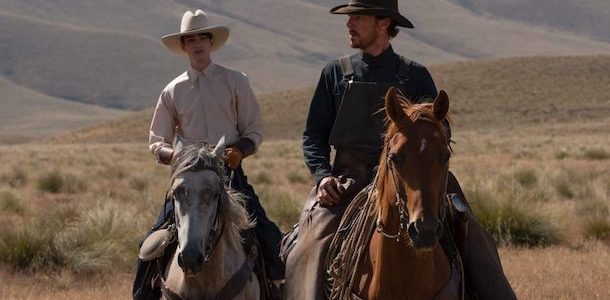
ReelBob: ‘The Power of the Dog’ ★★★½
By Bob Bloom
What does it mean to be a man?
That you can castrate a steer without flinching, cover yourself in mud and bathe in a river? Lord it over other people, making them feel worthless?
Or is being a man doing whatever is necessary to protect your loved ones?
Those are the questions that writer-director Jane Campion asks us to ponder if her stark, beautiful “The Power of the Dog.”
The protagonist of this movie, set in 1925 Montana, is Phil Burbank (Benedict Cumberbatch), owner, along with his brother, George (Jesse Plemons), of one of the biggest ranches in the state.
Phil considers himself a man’s man. He revels in his uncleanliness and crassness. He pushes and prods, bullying the staid and quiet George (whom, at several junctures he derides as “Fatso”), as well as anyone he believes does not live up to his standards.
Phil lives in the past, delighting his ranch hands with stories of his mentor, Bronco Henry, and wanting to keep matters as they are. Change is an anathema to Phil.
Phil is very displeased after George marries Rosie (Kirsten Dunst), the widow who runs the Red Mill restaurant. Earlier, Phil had acted cruelly toward Rosie and her teenage son, Peter (Kodi Smit-McPhee), to a point that drove both to tears.
Her intrusion into his and George’s home upsets Phil, and he is not shy about tormenting Rosie, making her feel totally unwelcome.
“The Power of the Dog” is a methodical psychological drama that is intense and disturbing.
Cumberbatch embodies a character who buries his insecurities and pain beneath a veneer of machismo. He is a guarded man, keeping others at an emotional arm’s length. He gets satisfaction from the pain he inflicts because it lessens his own.
It is a showy, but controlled, performance — one of the best of the year.
When Peter, a medical student, comes to spend the summer at the ranch, he is mocked as a “Nancy” and “faggot” by Phil’s ranch hands.
Peter simply ignores them. Out of the blue, Phil begins taking an interest in Peter. He teaches him to ride and shows him how to braid a rope.
Campion’s movie has a palatable homoerotic undercurrent. You can feel it in Phil, in the way he tries not to glance at his cowhands bathing naked in the river or how he stares at Pete.
Plemons’ George often doesn’t speak, but when he does it is measured and succinct. He is an awkward individual, uncomfortable with small talk.
Rosie is a hard-working and loving wife and mother. She also is insecure, and sensitive to the nastiness thrown at her by Phil.
Smit-McPhee’s performance is deceiving. Like George, he is a quiet individual. But he also is very observant and realizes the damage Phil is causing his mother. Peter is a smart and calculating young man who keeps his true feelings to himself.
The movie’s finale is unsettling, but not unexpected.
This is Campion’s first movie in about 12 years, and it’s a welcome return for an exceptional filmmaker. I hope it is not another 12 years before she again graces us with her talent.
I am a founding member of the Indiana Film Journalists Association. I review movies, 4K UHD, Blu-rays and DVDs for ReelBob (ReelBob.com), The Film Yap substack and other print and online publications. I can be reached by email at bobbloomjc@gmail.com. You also can follow me on Twitter @ReelBobBloom and on Facebook at ReelBob.com or the Indiana Film Journalists Association. My movie reviews also can be found at Rotten Tomatoes: www.rottentomatoes.com.
THE POWER OF THE DOG
3½ stars out of 4
(R), nudity, sexual content
